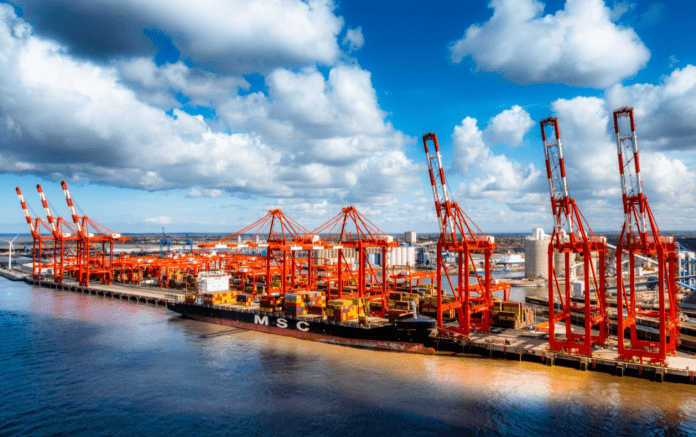Peel Ports Group has announced its commitment to become a net-zero port operator by 2040, ten years ahead of the United Kingdom (UK) Government’s national targets of decarbonisation.
The Liverpool-based port operator has unveiled a range of initiatives and investments to help drive a more sustainable agenda and reach the net-zero milestone by 2040 across all of its locations in the UK and Ireland.
By the end of this year, Peel Ports aims to have 50% of its vehicle fleet replaced with electric cars, with the remainder in place by next year’s December.
Currently, the UK port operator is undergoing trials of greener fuels and electric alternatives for the future of its operational machinery and equipment while it is also promoting the benefits of ports closer to the end destination, in order to reduce emissions, as well as introducing major new rail services for better connectivity.
Furthermore, in order to future-proof its carbon-neutral needs, the group has created an Innovation Forum which seeks to answer some of the biggest questions around the reduction of emissions. The forum tracks down answers from universities, entrepreneurs and start-ups, which in turn pitch their ideas and solutions.
“Our vision for the future of our business, our people, our customers and our communities is ambitious. Ultimately, our net-zero plans will work towards achieving long-term sustainable growth that has a positive impact on the environment, as well as regional and local economies for generations to come,” stated the CEO of Peel Ports, Mark Whitworth.
Additionally, Peel Ports officials noted that the group will continue to support the changing energy markets with both offshore and onshore wind sites available across its locations.
The port operator owning some of the UK’s largest ports including the Port of Liverpool, Clydeport and London Medway, is the first port group to convey such ambitious plans towards tackling climate change, according to a statement.
Over the last decade, Peel Ports has invested over US$1.62 billion (£1.2 billion) on sustainable infrastructure and technology to upgrade its operations including the delivery of energy-efficient cranes, LED lighting and choosing sustainable equipment and suppliers.







